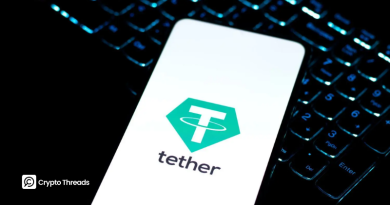South Korea Expands Crypto Seizures, Will Target Cold Wallets in Tax Crackdown
South Korea’s National Tax Service (NTS) is intensifying its efforts to curb crypto-related tax evasion, warning that even cold wallets — offline crypto storage devices — are not safe from seizure. The move signals one of the most aggressive crypto enforcement stances among global tax authorities.
- NTS to seize crypto from cold wallets via home searches if concealment suspected.
- New crackdown expands beyond exchanges to offline wallets and hardware drives.
- Over $108 million in crypto seized from more than 14,000 individuals in four years.
- Crypto investors in South Korea hit 11 million, up 800% since 2020.
- 2025 sees record-high 37,000 suspicious transaction reports (STRs) filed by exchanges.
South Korea’s National Tax Service (NTS) has stepped up its campaign against crypto tax evasion, declaring that digital assets held in cold wallets — hardware or offline storage devices — can now be seized. According to the Hankook Ilbo, tax officials will even conduct home searches to confiscate hard drives and cold wallets if they suspect individuals are hiding assets from taxation.
An NTS spokesperson said investigators use crypto-tracking tools to analyze transaction histories. If on-chain data reveals signs of hidden funds, the agency will authorize in-person searches and seizures. “If there is suspicion of offline concealment, we will conduct home searches and seizures,” the official said.
Under the National Tax Collection Act, the NTS already has authority to request information from local crypto exchanges, freeze user accounts, and liquidate assets at market value to cover unpaid taxes. Now, by extending enforcement to cold wallets, the agency is closing one of the last remaining loopholes for crypto tax evaders.
Cold wallets, which store cryptocurrencies offline, are considered one of the most secure ways to safeguard digital assets from hacks. However, they also make it difficult for regulators to trace or confiscate funds, a challenge the NTS is determined to overcome. The move marks a significant evolution in the country’s crypto oversight, aligning with its broader financial transparency agenda.
South Korea has one of the world’s most active crypto markets, with nearly 11 million investors as of June — up almost 800% from just 1.2 million in 2020. During the same period, crypto trading volumes grew from 1 trillion won ($730 million) to 4.7 trillion won ($4.7 billion). The NTS first began targeting digital assets for tax collection in 2021, when it confiscated about $50 million worth of crypto from 5,700 evaders. Over the last four years, total seizures have reached $108 million from more than 14,000 individuals.
The crackdown comes amid a surge in suspicious crypto activity. The Financial Intelligence Unit (FIU) reported nearly 37,000 suspicious transaction reports (STRs) from virtual asset service providers as of August 2025 — already exceeding the combined totals of 2023 and 2024. These reports are part of South Korea’s Anti-Money Laundering (AML) framework and are key tools for detecting illicit financial flows.
Officials say the aggressive push reflects growing concerns over the use of crypto for tax evasion, money laundering, and illicit wealth concealment. As the country prepares for broader digital asset regulation in 2026, South Korea’s NTS appears determined to ensure no crypto asset — online or offline — escapes its reach.
Final Thought
South Korea’s expanding enforcement strategy underscores the government’s commitment to closing crypto tax loopholes. By targeting cold wallets and intensifying home searches, authorities are signaling a new era of strict oversight — one that could influence how other nations regulate and recover crypto assets from evaders.



